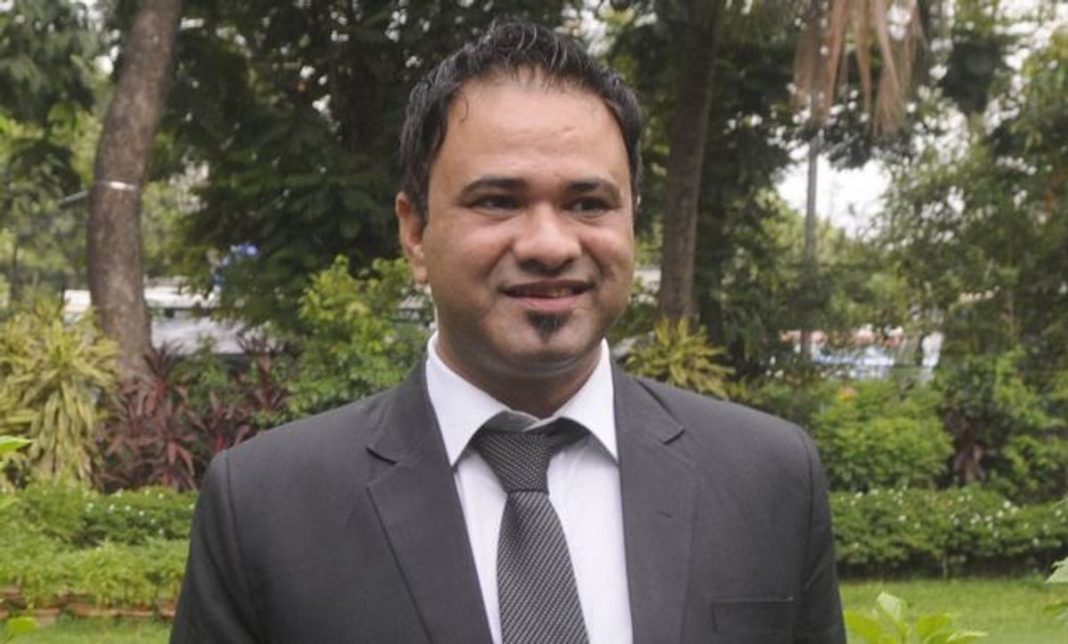NEW DELHI (AA) – A regional government in India extended on Sunday the detention of a Muslim doctor who voiced his concerns against controversial legislation for another three months, officials said.
Kafeel Khan delivered a “provocative speech” at the Aligarh Muslim University last December during protests against the Citizenship Amendment Act (CAA), which allows fast track Indian citizenship to non-Muslims from three neighbouring countries.
Kafeel Khan’s speech “disrupts harmony”?
Khan gave the speech at AMU on 12 December 2019, and an FIR was registered against him the next day under Section 153A of the Indian Penal Code (promoting enmity between different groups on ground of religion). The FIR blamed his speech for trying to “disrupt the harmony between the communities”, and said it was “also likely to create law and order situation”.
Read more: Kisi Kay Bap Ka Hindustan Nahin Hay: Indian Muslims assert!
Later, Sections 153B (imputations, assertions prejudicial to national integration) and 505(2) (statements creating or promoting enmity, hatred or ill will between classes) were added to the FIR, which referred to certain sentences from his speech, including references to “mota bhai (the Gujarati term for big brother)” and the RSS.
He was arrested more than a month later, on 29 January, and was granted bail by the Aligarh chief judicial magistrate on 10 February. But he wasn’t released for the next three days, despite three release orders from the magistrate.
Instead, on 13 February, he received the news that he had been charged with the NSA, and would remain in jail for at least three more months, under Section 3(2) of the Act.
Indian law can keep suspect in custody without charge
Arrested on Jan. 29 from Mumbai, India’s financial capital, he was granted bail in February. But before he could be released, authorities extended his detention under the National Security Act.
Under this law, a suspect can remain under custody, without charge, for up to 12 months.
Khan, who was a paediatrician at a hospital in Gorakhpur, Uttar Pradesh, made headlines when 63 children died in 2017 due to lack of oxygen.
While in prison, Khan wrote a 10-page letter, detailing his version of what transpired when the deaths at BRD Hospital occurred due to the oxygen supply being cut.
Read more: Citizenship Amendment Bill (CAB) – An Insurance Policy
He claimed that he called the head of the department, the principal and acting principal of BRD, the district magistrate of Gorakhpur, the chief medical superintendent of Gorakhpur and BRD Medical College, and his other colleagues to inform them of the situation.
He said that he also called local oxygen supplier agencies and begged them to immediately arrange for oxygen cylinders at BRD, and called nearby hospitals.
#Update | #Indian police picking up a #Muslim woman in hijab off Delhi streets.
Cameraman is also ordered & forced to stop recording it.It's a full blown attempt by #India to force #Muslim protesters back into submission through terror of mass and random arrests.
RT pic.twitter.com/tQ0VmwJ1rZ— Safe World (@Safe_WorldInfo) December 28, 2019
He narrated that he went out to buy oxygen cylinders himself. He was able to scrape 250 cylinders together, paying for them himself and promising the suppliers that he would arrange for the rest of the payment soon.
He carried some in his car and arranged with the Deputy Inspector General of Police for a truck and manpower from the Armed Border Force to deliver the others. He wrote that his family had been harassed by the police.
Muslim doctor inveighs prison conditions, as detention is extended
He was arrested for “medical negligence” and “corruption.” However, an inquiry cleared him of all charges.
In July 2020, a letter from Khan detailing conditions inside the Mathura Prison, where he is being detained, was published by several news outlets.
His letter claimed that over 150 prisoners shared just one toilet facility, that the level of hygiene was insufficient, and that a number of prisoners were unwell, raising concerns about the spread of illness in the wake of the Covid-19 pandemic.
Khan’s brother, Adeel Khan, claimed to have received the handwritten letter on 1 July 2020; however, prison officials denied that Khan had written any such letter, and suggested that the letter was fake.
On 26 June 2020, a group of officials and experts in the United Nations called on the Indian government to release political prisoners who had been arrested for protesting India’s Citizenship Amendment Act, including Khan.
https://twitter.com/BasedPoland/status/1210732454601842688?ref_src=twsrc%5Etfw%7Ctwcamp%5Etweetembed%7Ctwterm%5E1210732454601842688%7Ctwgr%5E&ref_url=https%3A%2F%2Fwww.globalvillagespace.com%2Fthousands-protest-in-rival-demonstrations-over-new-india-law%2F
The letter was signed by a number of Special Rapporteurs, including the Special Rapporteur on the Situation of Human Rights Defenders, the Special Rapporteur on the protection and promotion of the right to freedom of speech and expression, and the members of the U.N. Working Group on Arbitrary Detentions.
Earlier this year, protests against the CAA in northeast Delhi had turned violent.
The communal violence initially began on Feb. 23 as a confrontation between groups supporting and opposed to the law. It quickly morphed into battles between Hindu and Muslim groups, which the police were unable to control. At least 53 people were reported dead.
Anadolu with additional input by GVS News Desk














